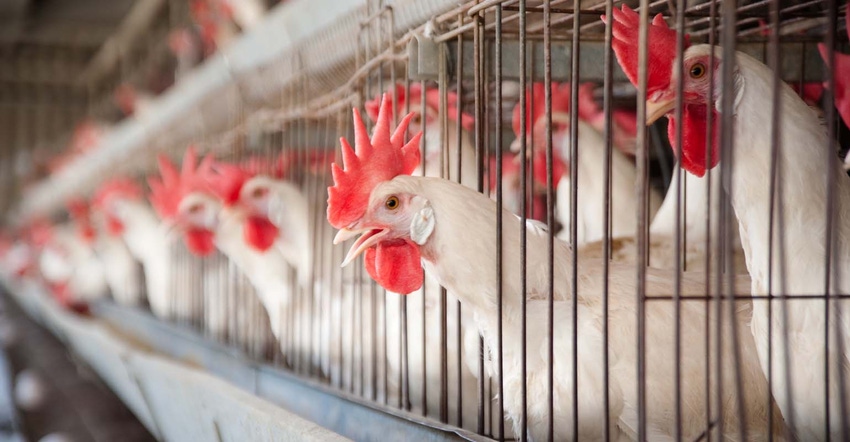
Commentary
On Feb. 27, 2017, the 9th Circuit United States Court of Appeals issued a common sense opinion regarding housing and safety conditions where hens lay eggs.
Compassion Over Killing, Animal Legal Defense Fund, (NGOs) and 6 individuals claimed FDA, USDA’s Agricultural Marketing Service, Food Safety and Inspection Service, and the Federal Trade Commission were required to “…promulgate regulations that would require all egg cartons to identify the conditions in which egg-laying hens were [housed] during production.” The Court of Appeals agreed with all of the federal agencies that they “…lacked authority to promulgate plaintiffs’ proposed labeling regulations for shell eggs.”
Compassion Over Killing and Animal Legal Defense Fund were represented by the large San Francisco law firm of Orrick Herrington & Sutcliffe LLP. The NGOs had submitted rule-making petitions to each of the federal agencies and asked each to revise labeling requirements on each carton of eggs sold in a store. NGO petitioners wanted all egg cartons to identify housing conditions for the egg-laying hens and they also wanted egg cartons in the grocery store to bear labels such as “Free-range Eggs, Cage-free Eggs” or the label of “Eggs from Caged Hens.”
Compassion Over Killing argued that “…consumers are being misled by certain statements and images on egg cartons that imply that the hens are being raised in cage-free environments.” Compassion Over Killing and Animal Legal Defense Fund told the court that various egg labels on cartons suggest images of uncaged hens and claimed the conditions the eggs were produced in were natural or animal friendly. It was argued that misleading images on egg cartons could mislead a consumer into believing hens were being raised in fields rather than in cages.
Nutritionally inferior?
The NGOs told the court that new regulations regulating the production of eggs are needed “…because eggs from caged hens are nutritionally inferior to and carry a greater risk of Salmonella contamination than eggs from free-range hens.”
Common sense prevailed!
Each federal agency denied Compassion Over Killing’s petition for rulemaking – arguing that none of them had either the authority or the information which would allow each agency to conclude that current egg-labeling practices are unfair or deceptive.
The FDA provided evidence which should be used in California courts to overturn its rule when it declared it had not been provided “…persuasive evidence that eggs from caged hens are either less nutritious or more likely to be contaminated with Salmonella than eggs from uncaged hens.” In troubling follow up language, the FDA did say if it wanted, it could bring individual enforcement actions against misbranded eggs.
The two NGOs also claimed that FDA had acted arbitrarily and capriciously when the agency denied claims that egg cartons are widely misbranded and that current labeling practices “affirmatively misrepresent” conditions regarding hens’ housing. The two NGOs again argued their scientific evidence regarding egg-laying hens have a greater risk of producing Salmonella contaminated eggs. Again, FDA rejected the NGOs’ scientific evidence. “[T]he court will not second guess the FDA’s conclusion that these studies were insufficiently reliable, largely because they fail to control for relevant variables.” This determination by federal agencies and a U.S. Court of Appeals provides a strong basis for challenging the California egg cage size statute.
Had the six Attorneys General challenging the California legislation used data from the federal agencies in a more appropriate legal procedure, they might have won in a U.S. District Court in California rather than losing. The U.S. Court of Appeals for the 9th Circuit has given the six state Attorneys General a new opportunity to amend their Complaint and win for egg farmers. The 6 Attorneys General have not chosen this correct legal procedure and instead have appealed a portion of their legal loss to the U.S. Supreme Court. (Likely to lose.)
Meantime, egg producing farmers are having criminal animal cruelty cases brought against them and are spending hundreds of millions of dollars increasing egg cage size for what federal agencies claim is based on bogus or unscientific grounds.
The opinions of the author are not necessarily those of Farm Futures or Penton Agriculture.
Gary Baise, a principal at OFW Law, specializes in Clean Water Act (CWA), Clean Air Act (CAA), National Environmental Policy Act (NEPA), Federal Insecticide, Fungicide and Rodenticide Act (FIFRA), and Solid Waste Disposal Act (SWDA) litigation as well as agricultural corporate governance issues. He serves as general counsel for U.S. Grains Council, Agricultural Retailers Association (ARA), National Association of Wheat Growers (NAWG), and National Sorghum Producers (NSP). Gary was the first Chief of Staff to the first U.S. Environmental Protection Agency (EPA) Administrator. He owns a family farm in Jacksonville, Ill.
About the Author(s)
You May Also Like




